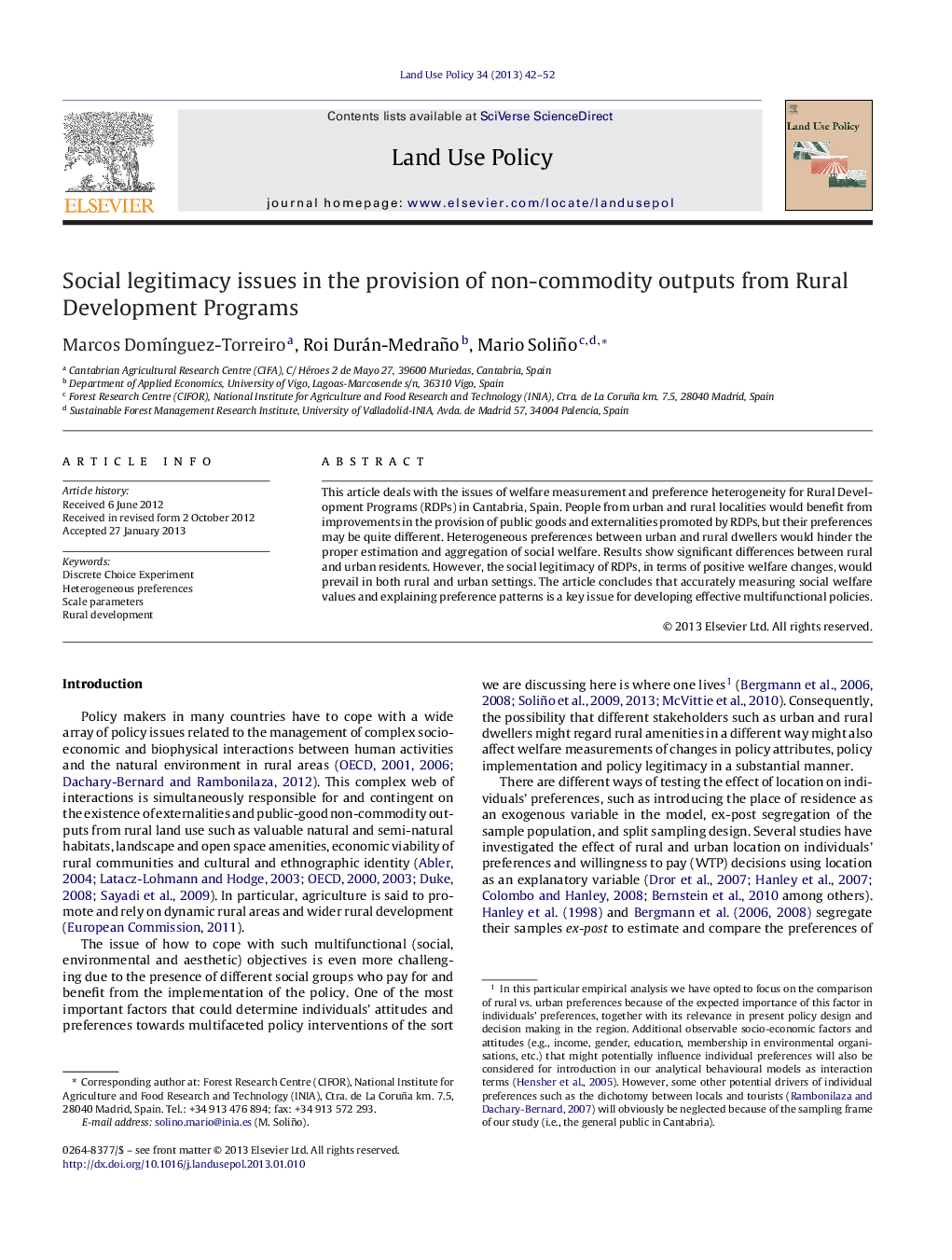| کد مقاله | کد نشریه | سال انتشار | مقاله انگلیسی | نسخه تمام متن |
|---|---|---|---|---|
| 93203 | 160117 | 2013 | 11 صفحه PDF | دانلود رایگان |
This article deals with the issues of welfare measurement and preference heterogeneity for Rural Development Programs (RDPs) in Cantabria, Spain. People from urban and rural localities would benefit from improvements in the provision of public goods and externalities promoted by RDPs, but their preferences may be quite different. Heterogeneous preferences between urban and rural dwellers would hinder the proper estimation and aggregation of social welfare. Results show significant differences between rural and urban residents. However, the social legitimacy of RDPs, in terms of positive welfare changes, would prevail in both rural and urban settings. The article concludes that accurately measuring social welfare values and explaining preference patterns is a key issue for developing effective multifunctional policies.
► Social welfare is a key issue for developing effective multifunctional policies.
► Heterogeneous preferences between urban and rural dwellers.
► Social legitimacy of RDPs would prevail in both rural and urban settings.
Journal: Land Use Policy - Volume 34, September 2013, Pages 42–52
